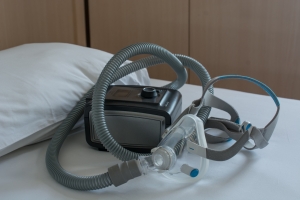
By Patricia McCarley, RN, MSN, ACNP and

Felicia Speed, PhD, LMSW
Patients on dialysis may complain of an intense feeling of tiredness or fatigue with 60-97% of patients finding it as important a health outcome as mobility or pain. While it may be difficult to identify the exact cause, patients with chronic kidney disease (CKD) or end stage renal disease (ESRD) have several factors contributing to fatigue, including uremia, an increased level of waste products in the blood, and anemia, a decrease in red blood cell production.
Anemia is a condition in which your body does not produce enough red blood cells to carry oxygen throughout the body. Fatigue is one of the symptoms you may experience when you are anemic. Healthy
kidneys make a natural hormone called erythropoietin or EPO. When your kidneys are failing, they will no longer produce normal amounts of the hormone EPO, making it much harder for you to maintain a healthy red blood cell count.
Another common issue for dialysis patients is difficulty sleeping or difficulty achieving quality sleep.
How many hours of sleep are you getting each night? If your answer to this question is seven to eight hours, that’s excellent. But if you’re only getting five or six hours of sleep each night or waking up in the middle of the night often, there are plenty of steps you can take toward sleeping more soundly and therefore feeling better during the day.
Some common issues people face when it comes to getting enough sleep include restless leg syndrome and sleep apnea. Restless leg syndrome is a condition that causes an uncontrollable urge to move the legs, typically in the evenings. Sleep apnea is a disorder in which one has difficulty breathing when sleeping.
apnea. Restless leg syndrome is a condition that causes an uncontrollable urge to move the legs, typically in the evenings. Sleep apnea is a disorder in which one has difficulty breathing when sleeping.
There are ways you can improve your sleep wellness. One way is to address fluid management. Your care provider can adjust your fluid removal, so just the right amount of fluid is being removed, to help decrease discomfort when it’s time to sleep. It is also important to talk with your dietitian and nurse to explore ways to control your fluid intake, while also ensuring you complete your entire treatment. You can try to create a better sleeping environment by taking steps to optimize your bedtime routine and bedroom. Turn your phone and TV off ahead of time or do relaxing activities such as meditating or reading. Be sure to ask your care provider how they can work with you to improve any aspect of your sleep. You can also ask about home treatment, which may result in better fluid management.
If you’re on dialysis, you may experience unpleasant side effects such as feeling tired most of the time. If so, you’re not alone. Your care team is always here to listen to your concerns about fatigue, tiredness, or poor sleep quality. Once you tell them the issues you are facing, they can put together a plan to address any issues that arise, and whether it can be solved by striving for better sleep, addressing other health conditions, or increasing the frequency of your dialysis treatments.




